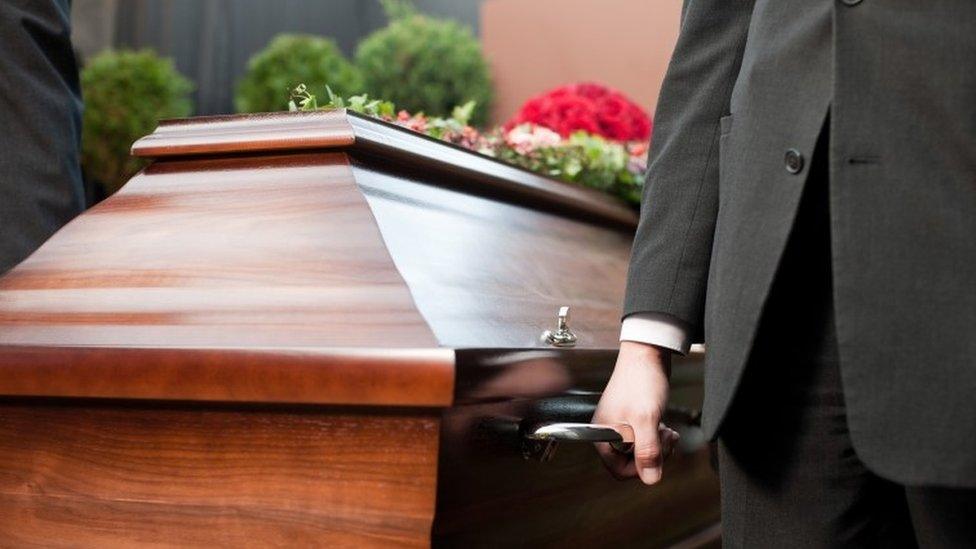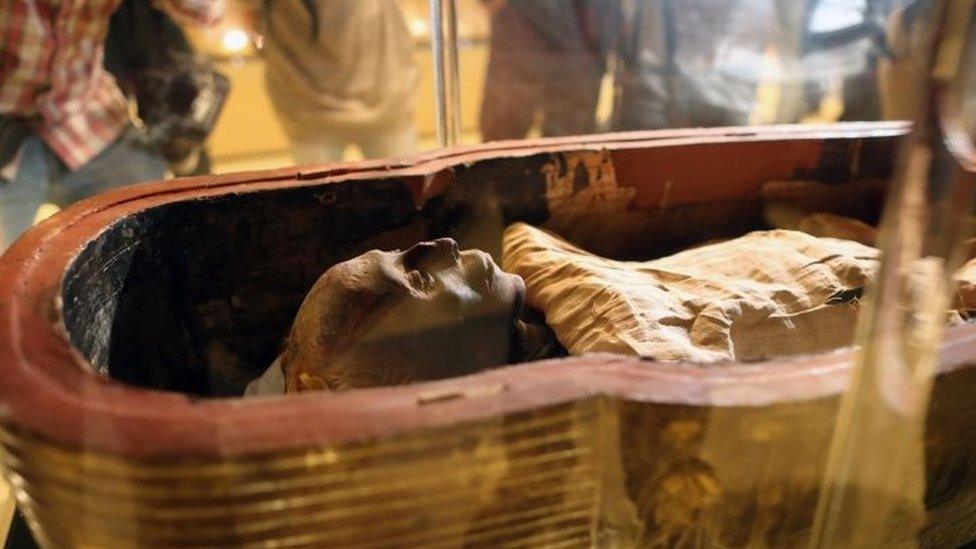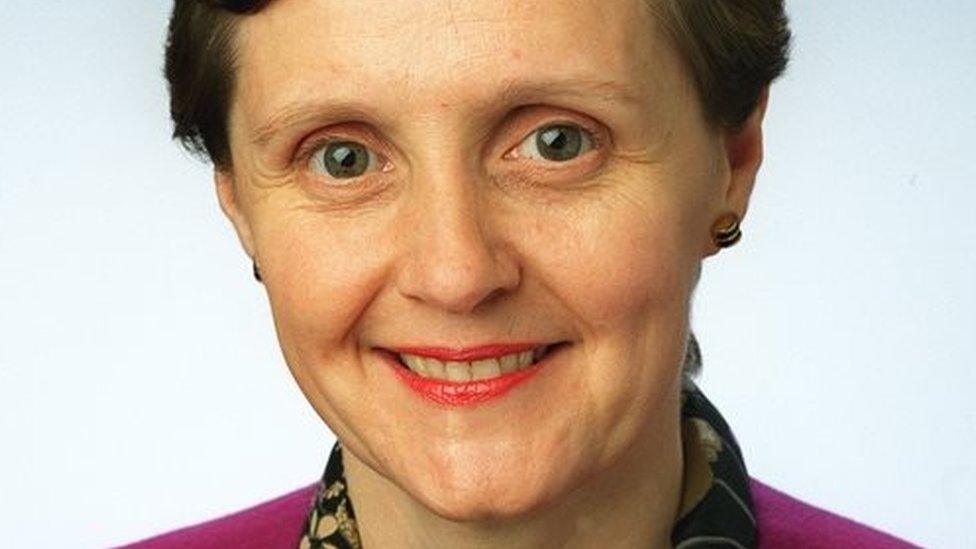EU embalming fluid ban 'to change funerals'
- Published
- comments

Grieving loved ones may no longer be able to pay their last respects to dead relatives when the EU bans the chemical in embalming fluid.
That is the fear of Britain's funeral directors after MEPs voted to restrict the use of formaldehyde.
The EU says it will protect workers' health and save lives.
And - in a concession secured by a Conservative MEP - it has delayed the ban on the substance for three years to allow the industry to adjust.
If the UK remains in the EU single market for 21 months after it officially leaves on 29 March, as is currently planned, then the government would be expected to transpose the directive into UK law within a strict time limit.
The Health and Safety Executive said it would welcome any measures to help controls but is trying to get more time for the funeral industry to adjust.
A HSE spokesman said: "This is not a ban on formaldehyde. The European Commission has proposed formalising exposure limits.
"Formaldehyde is a known human carcinogen that requires close regulation, which the funeral sector has always taken into account. As is the current case, it will still be used in a controlled manner.
"As a responsible regulator we have always worked closely with the funeral industry to understand its particular needs. This has informed our discussions at EU level.
"Our dialogue with the sector on the proposed limits will continue whatever the terms of our departure from the European Union."
The HSE said the three-year exemption period would come on top of the usual two-year implementation period for a new regulation to come into force, meaning it will not apply to the funeral sector for five years.
Funeral directors in the UK are concerned they will not be able to find a replacement for formaldehyde and that they will be faced with extra costs.
Formaldehyde, which can cause irritation and has been linked to nasopharyngeal cancer, is one of five industrial chemicals to be added to the European Commission's list of restricted carcinogens and mutagens, external.
The UK funeral industry says it recognises that formaldehyde, which is also used in hospitals and in a wide variety of industrial processes, has been linked to serious illnesses.
But it argues that the chemical does not pose a significant risk to workers in the diluted form, known as formalin, used by embalmers.
And if an alternative to formalin cannot be found, then the "culture" around Christian burials and cremations in the UK, will have to change, with funeral directors advising more families against seeing their loved one in the coffin, although ultimately it is the family's choice whether to do so.
The embalming of bodies is prohibited in the Jewish and Muslim faiths. It is not forbidden in Hinduism but is rare because cremation normally takes place within 24 hours of death.
The funeral industry estimates between 50% and 55% of cadavers in the UK undergo some form of embalming so they can be viewed by relatives. The practice has become more prevalent in recent years because of the growing length of time between death and funeral, caused by delays in obtaining paperwork.
The embalming process

The ancient Egyptians used embalming materials to preserve mummies
Bodies have been preserved after death since at least 4,000 BC
Embalming using formaldehyde and other chemicals began in the late 1800s to preserve bodies for scientific study
It involves the draining of the deceased's fluids and the injection of chemical solutions into the arteries, tissues and sometimes organs
The process takes about an hour and embalmers are required to wear protective clothing and respirators
"Visiting a loved one in the chapel of rest can be both a distressing and comforting experience for families, and it is also proven to be an important part of the grieving process," says Jon Levett, chief executive of the National Association of Funeral Directors.
"For funeral directors, embalming offers the only realistic solution that will delay deterioration and present the deceased person at peace and as close to their appearance before death as possible; particularly where there has been a post mortem, examination, traumatic death - or to accommodate the increasing gap between death and a funeral which is now often two or three weeks.
"For all of these reasons, embalming remains a common funeral choice in the UK by families, much more so than in Europe."

Anthea McIntyre secured a temporary exemption for funeral directors
He welcomed the three-year delay in the implementation of the EU directive to "allow funeral firms to continue the search for a feasible alternative" but suggested the UK may need to "change the culture around funerals to make the need for embalming redundant".
All the alternatives to formalin tried so far "simply do not work as a preservative", he added.
West Midlands MEP Anthea McIntyre, who this week secured the three-year exemption in a vote in the European Parliament, said: "This new legislation is well meant, but I don't think officials in Brussels realised quite how big the impact would be on Britain."
Refrigeration has been used as an alternative to embalming but that can lead to dehydrated remains and, with repeated thawing and refreezing, accelerated decay, leading to "an unwholesome viewing situation", a briefing note by the funeral industry said.
"For the close viewing of the deceased to take place, it is essential for the deceased to be embalmed so the person viewing is safe (free from the hazard of infection), and that the deceased's remains are fixed and stable and do not chemically break down or decompose and/or release embarrassing odours from decomposition," it added.
The European Commission says setting maximum values for the concentration in workplace air of the five chemicals added to its list will improve conditions for more than 1,000,000 EU workers and prevent more than 22,000 work-related illnesses over the next 50 years.
The Council of Ministers in Brussels is due to vote in the issue on 6 December - and the Health and Safety Executive is hoping it will be agreed.